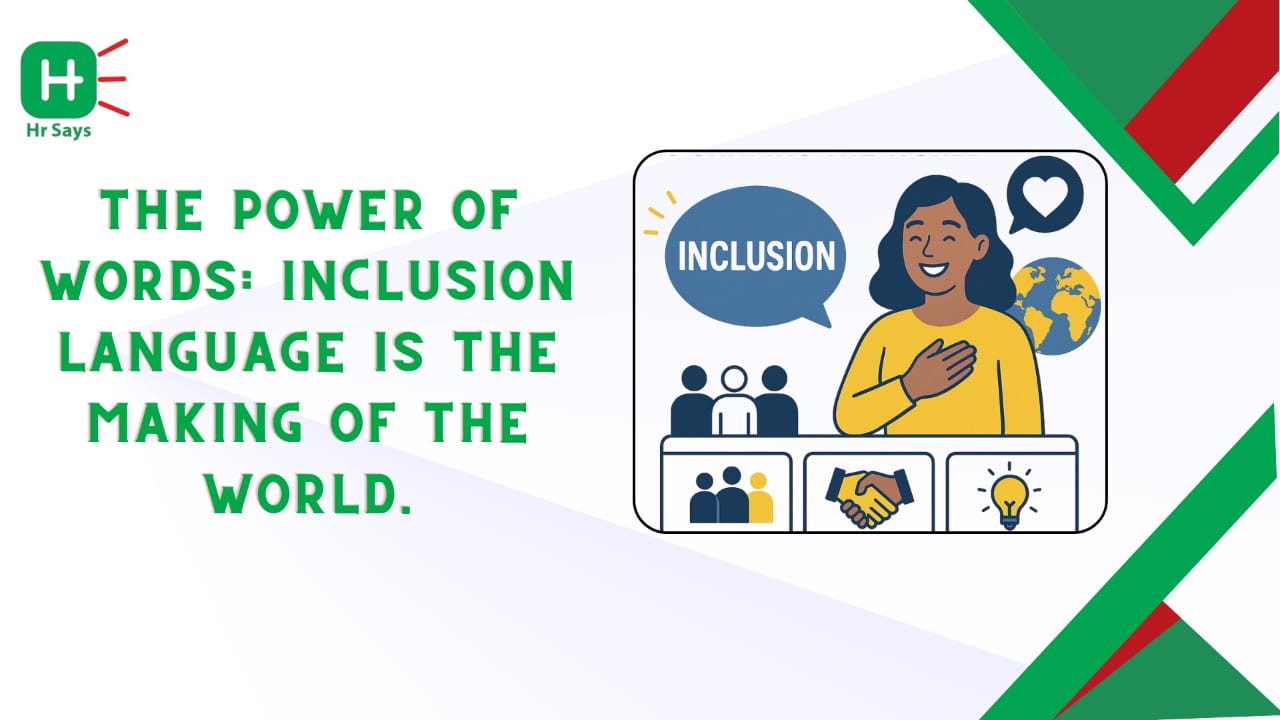Did you ever wonder how one word can either make a person feel visible, or get the person to feel unnoticed by the world? That is the silent authority of speech. The slightest changes in our pronounciation or style of writing will alter conversation, the workplace, or even culture.
What Is Inclusive Language?
Inclusive language doesn’t shout. It listens. It’s the way we choose words that respect everyone, regardless of gender, background, ability, or identity. This isn’t about walking on eggshells. It’s about opening doors.
Inclusive language creates space:
● Where no one feels left out.
● Where assumptions don’t lead.
● Where communication becomes a bridge, not a barrier.
It’s not just about being politically correct. It’s about being human.
Why It Matters More Than We Think
Words carry weight. Sometimes, what’s meant to be harmless can sting—or shut someone out entirely. Think of “guys” used for a group, or “crazy” tossed into casual talk. Not everyone fits into the mold those words assume.
And when language repeats that exclusion? People start to believe they don’t belong.
Small language shifts can:
● Increase trust
● Boost team morale
● Reduce unconscious bias
● Build stronger, more respectful spaces
This isn’t just about individuals. Brands, educators, leaders—everyone—has a role to play.
Common Words, Uncommon Impact
Let’s break it down. Here are everyday phrases that might seem innocent—but have deeper layers:
● “Hey guys”
Try: everyone, folks, or team
● “He/she will…”
Try: they will…
● “Chairman”
Try: chairperson
● “Normal people”
Try: non-disabled or people without disabilities
● “That’s crazy!”
Try: That’s wild, unbelievable, or unexpected
These changes seem minor. But to someone on the outside? They feel massive.
How to Start Using Inclusive Language
It begins with noticing. Listening. Relearning. This isn’t about perfect grammar. It’s about intention.
1. Replace Assumptions
Not everyone uses binary pronouns. Not every family looks the same.
Instead of: "Mom and Dad"
● Try: "parents or guardians"
Instead of: "Ladies and gentlemen"
● Try: "everyone" or "guests"
2. Pause Before You Post or Speak
Read what you wrote. Rethink what you said. If someone corrects you? Listen. Learn. Thank them.
3. Avoid Stereotypes
Words like “bossy” for women or “strong” only for men feed old ideas. Let’s leave those behind.
A Shift Worth Making
Language evolves. So can we. Changing how we speak won’t fix everything. But it opens the floor. It says: you’re welcome here.
Inclusive language isn’t a checklist. It’s a mindset. And every time we speak with care, we move closer to a more respectful world.
It’s not hard. It just starts with one word.

 Inclusive language invites, respects, and connects. Even small shifts in everyday speech can build safer, more welcoming spaces—without noise, just intention.
Inclusive language invites, respects, and connects. Even small shifts in everyday speech can build safer, more welcoming spaces—without noise, just intention.








.jpeg)
.jpeg)

.jpeg)





.jpeg)



.jpeg)

.jpeg)



